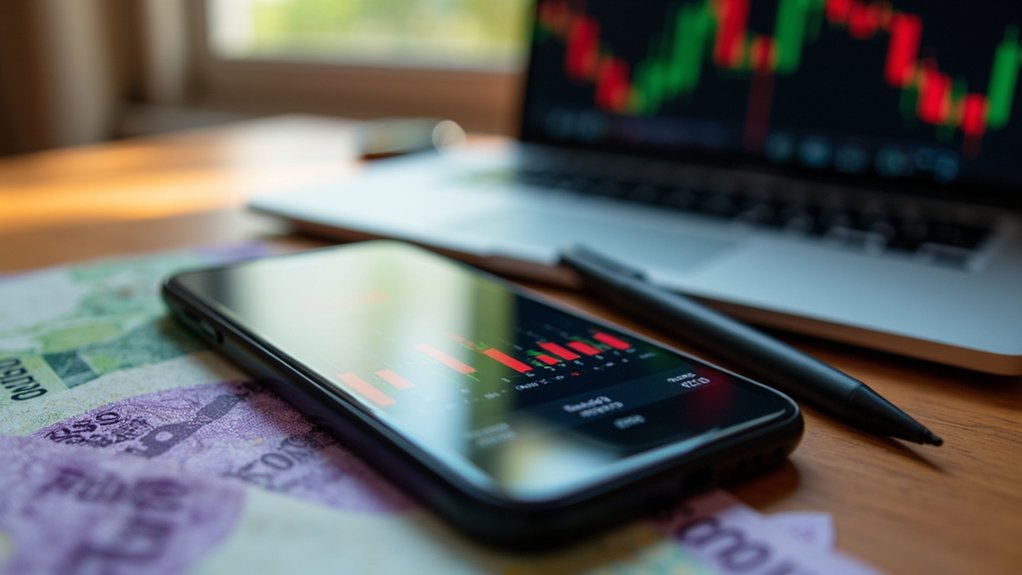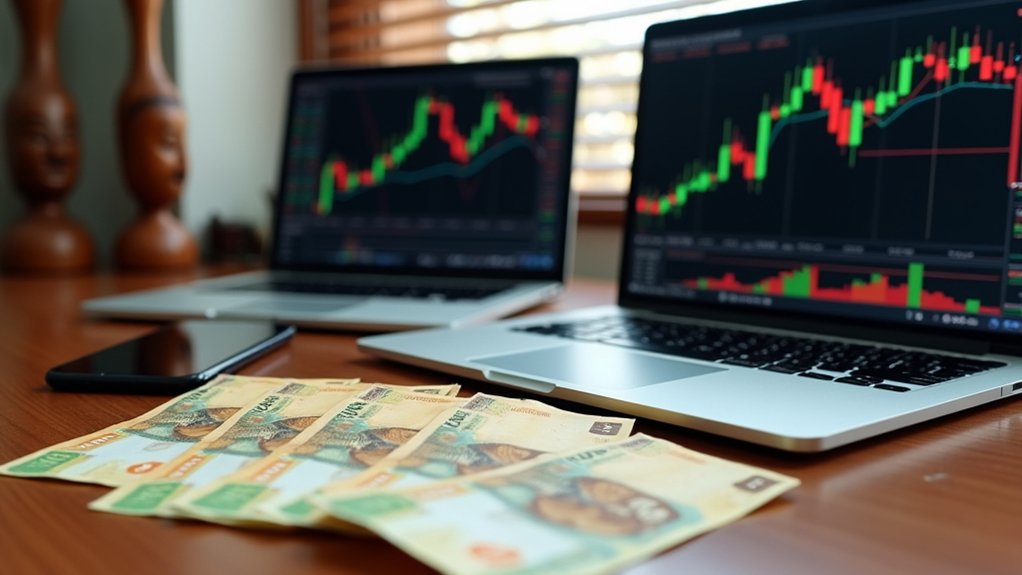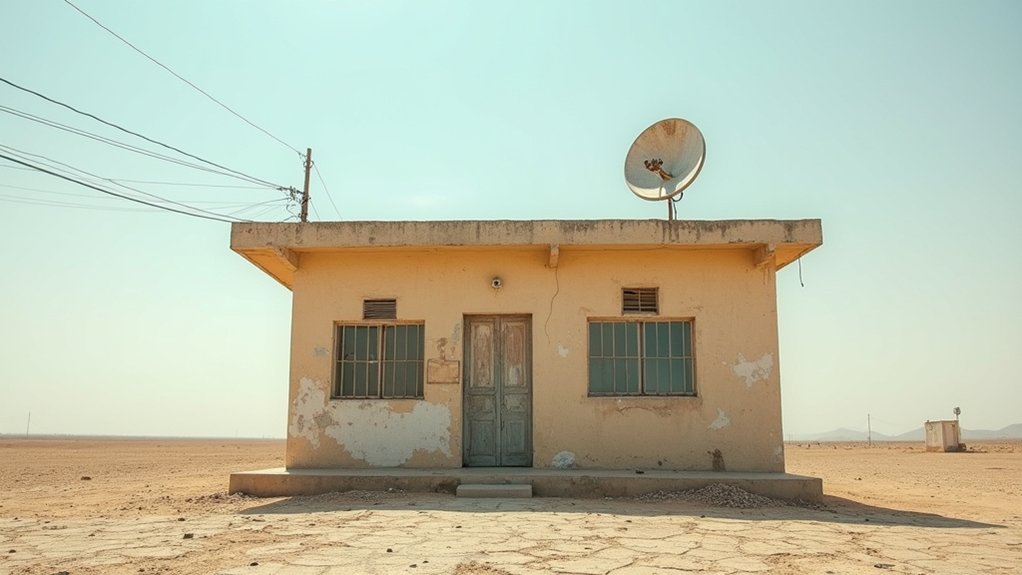Kenya legalized forex in 2018 under Capital Markets Authority oversight and promptly became Africa's third-largest retail market—fueled by cheap smartphones, aggressive broker marketing, and pandemic desperation. Problem is, 75–90% of traders lose money even with legitimate brokers, fake platforms flood social media with 1:400 leverage promises, and the payment infrastructure wasn't designed to handle twelve percent of Africa's retail volume. Only four brokers hold CMA licenses, while forty unlicensed operators have already been shut down. The mechanics, risks, and tax traps matter more than the hype.
Quick Facts That Matter
- Kenya's Capital Markets Authority has regulated forex since 2018, but only four brokers hold CMA licenses as of content date.
- Approximately 90,000 Kenyans trade forex, yet 75–90% of retail traders lose money even with legitimate brokers.
- M-Pesa enables instant deposits from $1, but many international brokers lack full mobile-money integration for Kenyan traders.
- Optimal trading occurs during London–New York overlap (3–6 PM EAT) when liquidity is highest and spreads are tightest.
- Fake brokers and Ponzi schemes are rampant; CMA cracked down on 40 unlicensed operators and investigated 500 unregulated products.
Overview: Forex Trading in Kenya

Over the past five years, Kenya's retail forex trading scene has transformed from a regulatory vacuum into Africa's third-largest regulated market. The Capital Market Authority rolled out regulations in August 2017, making Kenya the second African nation to actually police this space. By February 2018, EGM Securities snagged the first broker license, and the floodgates opened.
Fast forward to 2020. COVID hit. Lockdowns happened. Jobs evaporated. And suddenly 90,000 Kenyans were trading currencies from their phones. The market exploded by 80% that year alone.
Why? Cheaper internet. Better smartphones. Aggressive broker marketing. And a workforce desperate for income after the pandemic torched traditional employment. Millennials led the charge, betting on forex as their alternative paycheck.
The Central Bank of Kenya maintains foreign exchange reserves that recently hit 8.85 billion dollars, providing crucial stability for the shilling against major currencies like the dollar. This reserve cushion helps regulate the forex market by allowing interventions when the local currency faces pressure. The Capital Markets Authority now licenses and oversees all forex brokers operating in Kenya, enforcing compliance standards that protect retail traders from unregulated operators.
Is Forex Trading Legal in Kenya?
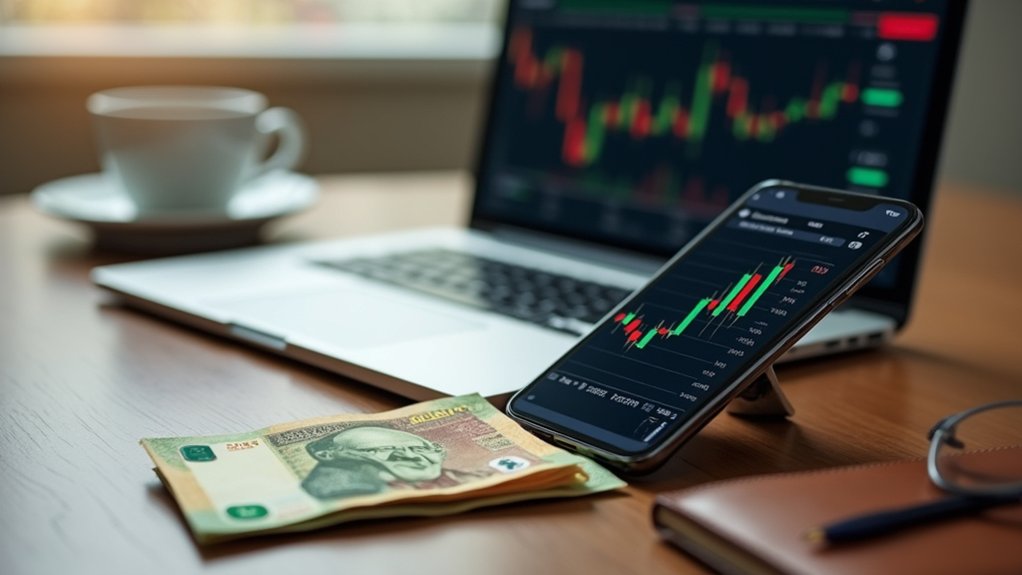
Yes, forex trading is legal in Kenya—and not just technically legal in the “nobody's really watching” sense. The Capital Markets Authority has regulated it since 2018 under the Capital Markets (Online Foreign Exchange Trading) Regulations 2017.
Forex trading in Kenya isn't just legal on paper—the CMA actively regulates it under proper 2017 legislation.
The National Treasury gave the CMA this authority through the Finance Act 2016, specifically to clean up a market where Kenyans were getting burned by sketchy foreign brokers. The regulatory framework borrows from heavyweights like the UK's FCA and Australia's ASIC.
There are three license types: dealing brokers, non-dealing brokers, and money managers. Operating without CMA licensing? That's an offense under the Capital Markets Act. Licensed brokers must maintain physical offices in Kenya with adequate staffing and capital.
The regulations exist because someone finally noticed people needed protection. The Central Bank of Kenya also plays a crucial role in the forex market through its monetary policy decisions and intervention mechanisms that influence exchange rates.
Who Regulates Forex Trading in Kenya?

One agency runs the show: the Capital Markets Authority. That's it. No shared jurisdiction, no overlap with the Central Bank on forex retail matters. CMA owns the whole licensing operation under the Capital Markets Act and specialized 2017 regulations covering online foreign exchange trading.
Their job? License brokers, enforce rules, chase down illegal platforms operating without permission. They issue three license types: dealing brokers, non-dealing brokers, and money managers. Non-dealing brokers act as middlemen connecting traders to markets for commissions or spread markups—no market-making allowed. Leverage caps at 400:1, though CMA can adjust based on risk assessments.
As of now, only four licenses have been issued. Three non-dealing brokers, one money manager. That's the entire legal universe in Kenya.
CMA was established in 1989 and operates under the supervision of Kenya's National Treasury. The agency also runs investor education programs to promote risk awareness among forex market participants, helping traders understand the volatility and leverage risks inherent in currency trading. Understanding currency exchange trading regulations is essential before selecting a broker, as unlicensed platforms continue to target Nigerian and Kenyan traders through unregulated offshore operations.
How Forex Trading Works in Kenya

Getting started with forex trading in Kenya isn't rocket science—it's actually simpler than most banks make it sound. Traders register with a CMA-licensed broker like EGM Securities or PepperStone Kenya, submit ID documents, and get approved within hours. Demo accounts let beginners test strategies with fake money first. No drama there.
Live trading kicks in after depositing funds—as little as $5 with HotForex or KSh. 500 with local platforms. Though $500 minimum makes more sense for position sizing. Funding happens through M-Pesa, Airtel Money, bank transfers, or cards. M-Pesa credits instantly. Bank withdrawals take up to 24 hours.
Withdrawals reverse the process. E-wallets and mobile money clear in hours. Bank withdrawals drag on for days. Trading itself runs through platforms like MT4 or broker apps with spreads starting at 0.0 pips. Brokers charge through the spread between bid and ask prices, with some adding commissions on Zero or ECN account types. The online trading platform serves as the interface where traders execute buy and sell orders on currency pairs.
Best Time to Trade from Kenya
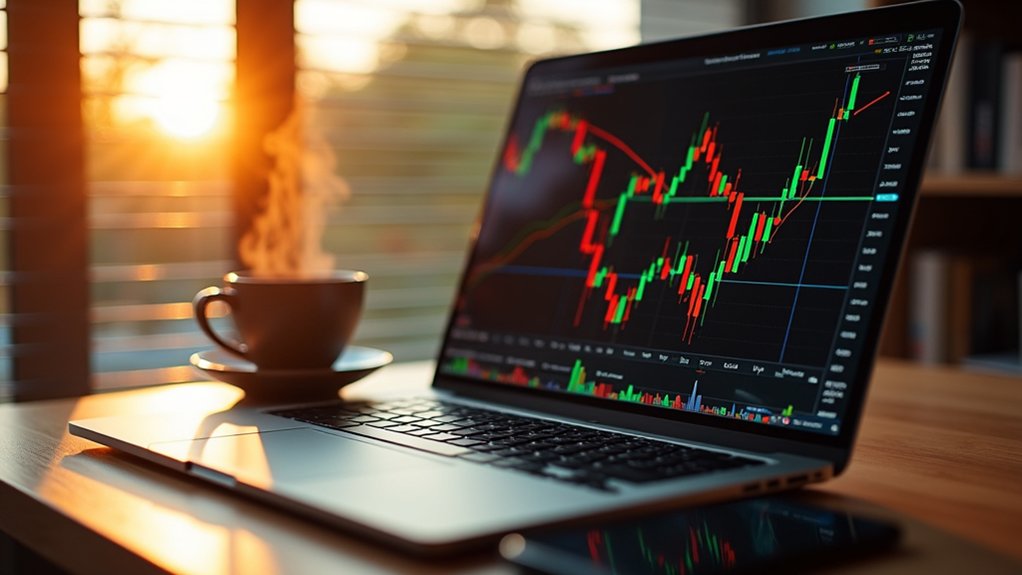
Timing matters more than most Kenyan traders realize. The London-New York overlap—3 PM to 6 PM EAT—is the golden window. Highest liquidity, tightest spreads, actual movement. Day traders and scalpers live for this period.
The London session runs 10 AM to 6 PM EAT, New York from 3 PM to midnight. EUR/USD and GBP/USD shine during the overlap. Wake up early? The Asian session (3 AM to noon) offers moderate action for USD/JPY and AUD/USD traders. Less chaos, fewer opportunities. Different currency pairs show distinct activity patterns based on which major financial centers are open. Central banks and companies drive most movements early in each session, then activity tapers off.
Economic releases throw volatility into otherwise dead hours—employment data, GDP reports, interest rate decisions. They don't respect session boundaries.
Low liquidity periods mean wider spreads and terrible execution. Trade when the big money trades, or pay for it.
Payments, Deposits and Withdrawals in Kenya
Every Kenyan trader knows M-Pesa changed the game. Deposits hit accounts in 30 seconds. Cost? About $2. Compare that to international wire transfers that bleed fees and take days.
M-Pesa deposits clear in 30 seconds for $2. Wire transfers take days and drain your account with fees.
Exness and FBS accept deposits from $1. HFM starts at KES 1,000. FXCM wants $50. FP Markets asks for $100.
Withdrawals tell the real story. Exness processes payouts instantly through M-Pesa. Others? Bank transfers with conversion fees that quietly eat profits.
Here's the problem: most international brokers still treat Kenya like an afterthought. Only Exness, HFM, and FXTM offer full M-Pesa integration. Pepperstone supports mobile payments. FXCM and FP Markets? You're back to Skrill or bank cards.
The infrastructure isn't built for Kenya's volume. Twelve percent of Africa's retail forex happens here, yet payment gateways lag behind. Smaller screens and data costs can limit how traders analyze charts and manage positions on the go. Neighboring markets like Namibia's forex sector face similar payment infrastructure challenges across the region.
Taxes, Reporting and Money Rules in Kenya
Most Kenyan traders learn about taxes the hard way. The Kenya Revenue Authority treats forex gains as ordinary income—not capital gains, not special investment returns. Just income. Since 2018, when the National Treasury expanded its tax net, forex traders have been squarely in KRA's crosshairs. This happened after GDP declines triggered revenue losses.
The good news? Business deductions work. Software costs, hardware, internet bills, office rent, educational expenses—all deductible. But only if traders keep meticulous records. Without documentation, those deductions vanish.
The Capital Markets Authority regulates brokers since 2018, requiring proper licensing. Unlicensed broker scams were rampant before then. Now CMA intensifies oversight in 2025, pushing transparency. Regulated brokers are held accountable to rules and guidelines that protect client funds. Understanding compliance requirements helps traders verify their broker meets necessary regulatory standards. The Virtual Asset Service Providers Bill passed in October 2025, giving Central Bank stablecoin licensing authority.
Forex Trading Scams and Risks in Kenya
Scammers love Kenyan forex traders. Between fake brokers, multilevel marketing schemes, and Ponzi funds disguised as securities products, there's no shortage of ways to lose money.
The Capital Markets Authority investigated 500 unregulated products and cracked down on 40 unlicensed operators. Too late for many. Retail investors lost 87% of the Kes 1.4 billion dumped into SCFM alone.
Foreign-based firms operate with zero physical presence in Kenya, making enforcement basically impossible. They promise ridiculous returns via social media, offer leverage up to 1:400, and route deposits to offshore accounts that vanish. The dark web helps. In contrast, South Africa's Financial Sector Conduct Authority maintains strict oversight of forex brokers, ensuring market integrity through comprehensive licensing requirements and trader protection measures.
Only four brokers hold CMA licenses: FXPesa, Scope Markets, Pepperstone, and FXTM/Alpari. Everyone else? Unregulated. And 75-90% of retail traders lose money anyway, even with legitimate brokers. The CMA now requires all nine regulated brokers to display client-loss ratios on their websites—a transparency move meant to warn investors about the real odds of losing money.
Quick Q and A
Can I Trade Forex in Kenya With M-Pesa?
M-Pesa compatibility with forex platforms remains unconfirmed in available documentation. Traders must contact individual licensed brokers directly to verify accepted deposit methods, as specific payment system integrations vary by broker and jurisdictional compliance requirements.
What Is the Minimum Deposit to Start Forex Trading in Kenya?
The minimum deposit to start forex trading in Kenya is as low as 500 KES with local brokers, though a practical starting amount of 25,000 KES is recommended to sustain trading activity and manage risk effectively.
Do Kenyan Forex Brokers Offer Islamic Swap-Free Accounts?
Yes, several brokers serving Kenyan traders offer Islamic swap-free accounts compliant with Sharia law. Exness, Pepperstone, AvaTrade (Official Site 🔗), HFM, and MultiBank provide these accounts, eliminating overnight interest charges while maintaining full trading functionality through popular platforms.
Can I Trade Forex Full-Time as a Career in Kenya?
Yes, individuals can pursue full-time forex trading in Kenya legally. However, success requires substantial capital, risk management skills, and realistic income expectations given high volatility, leverage restrictions, and limited regulatory protections for retail traders.
Which Forex Broker Is Most Popular Among Kenyan Traders?
Exness holds the position as the most popular regulated forex broker among Kenyan traders, distinguished by CMA authorization, M-Pesa integration, instant withdrawals, and competitive leverage offerings that align with local market preferences and payment infrastructure.
The Bottom Line
Forex trading in Kenya exists in a weird gray zone—technically legal, barely regulated, mostly happening through offshore brokers the CMA can't really touch. Some people make money. Most don't. The infrastructure works okay if you pick legitimate platforms and understand the tax implications. But the scams are everywhere, the risks are real, and nobody's coming to save you if things go sideways. It's accessible, sure. Whether it's actually worth it? That's another question entirely.
